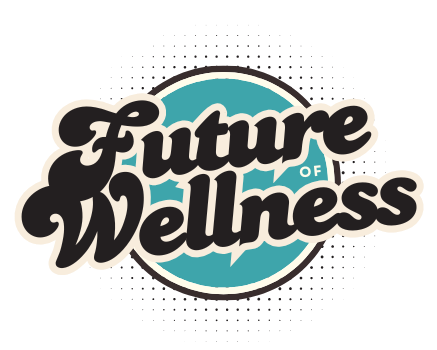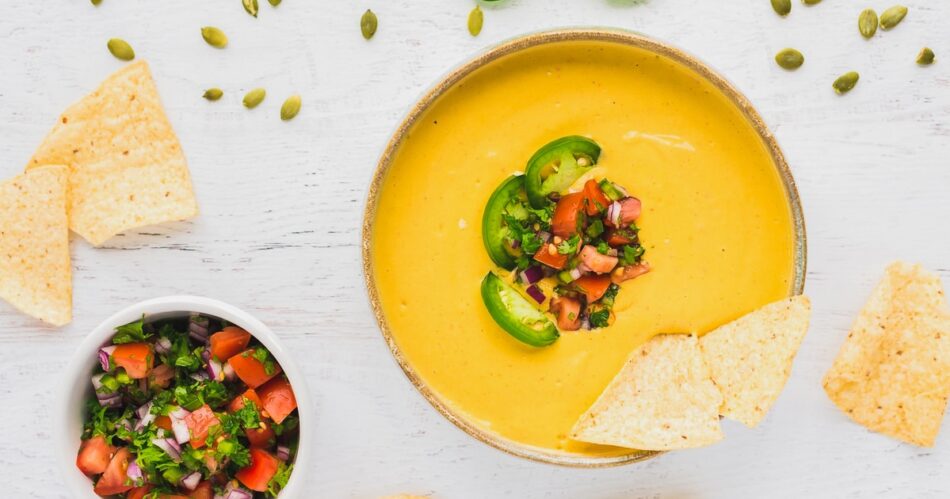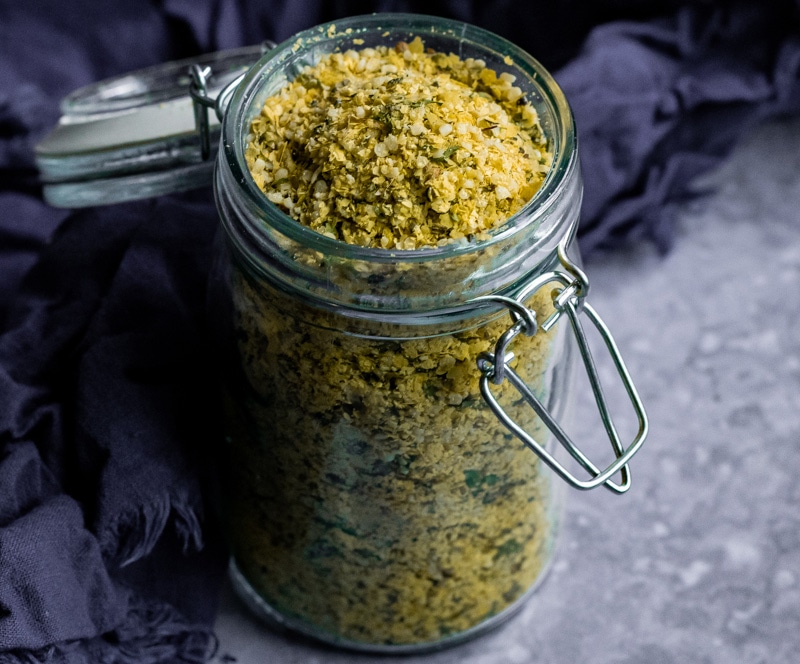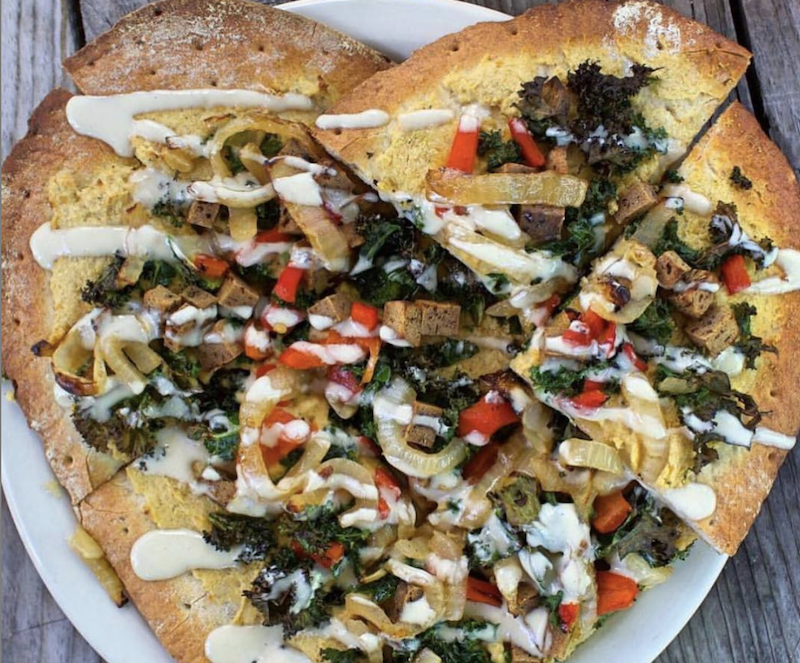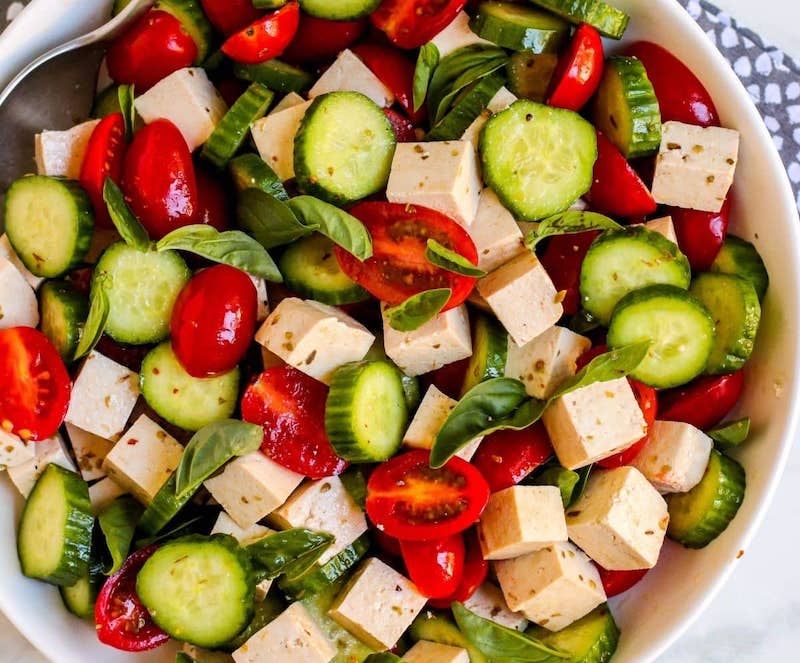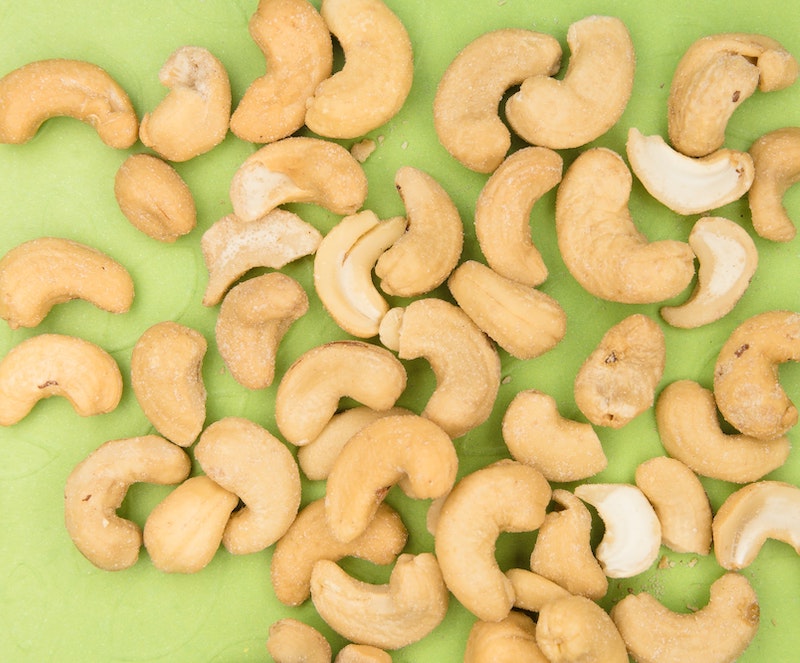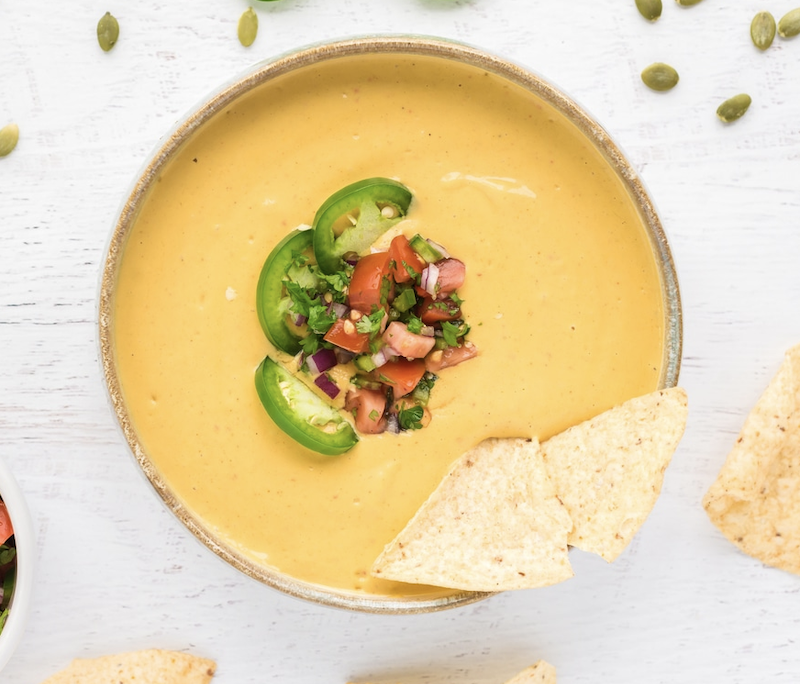A quality vegan cheese is perfect for someone transitioning to a plant-based diet, and even seasoned vegans enjoy the convenience of a classic grilled cheese made with non-dairy cheddar slices.
However, these products aren’t perfect: they’re often processed and can be expensive. For those times when you’re in the mood for something budget-friendly, with a more streamlined ingredient list and heightened nutritional profile, here are five non-dairy cheeses that aren’t your typical sliced, shredded, or gourmet vegan cheese product. But first, let’s look at how traditional cheese is made and what it’s made from.
What is actually in cheese?
Cheese is a dairy product typically made from cow’s milk, though it can also come from goats, sheep, or buffalo. It contains two main milk proteins: casein and whey. The cheesemaking process involves separating these proteins from the liquid, fermenting the solids, and aging them to develop flavor and texture.
Cheese production and its broader impact
Modern dairy production is a massive industry. Around the world, an estimated 270 million cows are farmed to produce milk and dairy products, including cheese. This scale of production doesn’t just raise ethical questions, but it also has significant environmental consequences.
The dairy industry contributes to water pollution, air quality issues, and greenhouse gas emissions. According to the United Nations, animal agriculture is responsible for 14.5 percent of all global emissions.
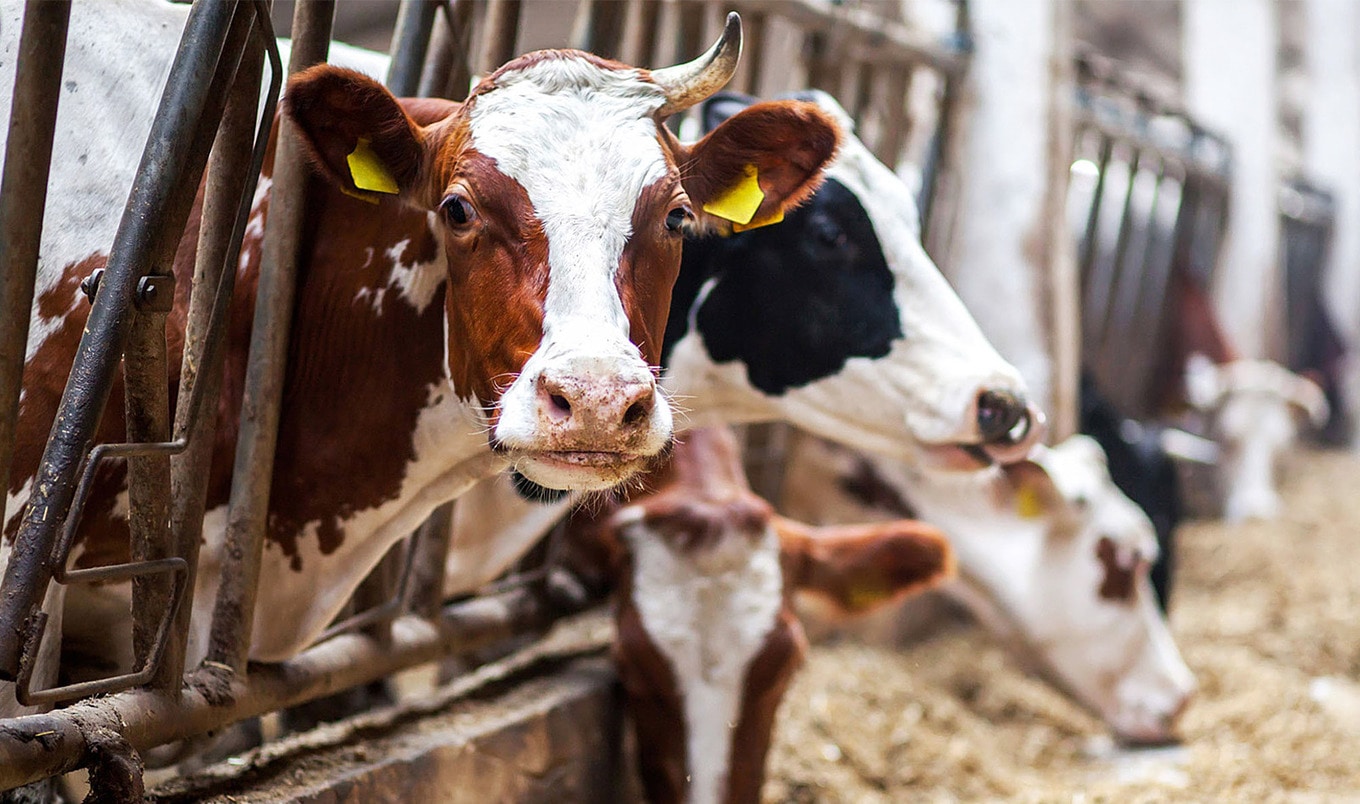 Adobe
Adobe
Research also suggests that dairy cheese might not be the healthiest choice, especially in large amounts. While it’s a source of protein and calcium, it’s also high in sodium and saturated fat. Overconsumption of saturated fat has been linked to elevated LDL (“bad”) cholesterol levels, which can increase the risk of heart disease.
“It’s recommended to limit your saturated fat intake to under 10 percent of calories a day, preferably less than that,” Ashley Kitchens, MPH, RD, LDN, owner of Plant Centered Nutrition, previously told VegNews. “When you’re eating dairy products, that can be challenging to do.”
And if that weren’t enough, a growing body of research suggests that dairy cheese might also disrupt your sleep, especially for those with lactose intolerance. One recent study found a link between food sensitivities and unsettling dreams.
“Nightmare severity is robustly associated with lactose intolerance and other food allergies,” said Tore Nielsen, lead author of the study and professor at Université de Montréal. “These new findings imply that changing eating habits for people with some food sensitivities could alleviate nightmares. They could also explain why people so often blame dairy for bad dreams.”
5 dairy-free cheesy swaps
But here’s the good news: dairy cheese isn’t a necessity.
Plenty of plant-based alternatives exist, many of which taste great and are better for your health and the planet. We’ve rounded up five unexpected, simple, and satisfying non-dairy cheese options that go beyond the usual slices and shreds, no additives or artificial ingredients required.
1 Nutritional yeast
These nutrient-dense golden flakes are the secret weapon in any well-executed homemade vegan cheese. Nutritional yeast, affectionately known as nooch, has a naturally cheesy, savory flavor that makes it a favorite among plant-based cooks. Sprinkle it over pasta in place of vegan parmesan, toss it on popcorn instead of powdered cheese, or mix it into roasted vegetables for a rich, umami finish. It’s also a go-to ingredient in sauces, dips, and even the occasional dessert.
Nutritionally, nooch punches well above its weight. Just two tablespoons deliver about six grams of protein, two grams of fiber, zero fat, and a major dose of B vitamins, including 80 percent of your daily B12. It’s a true pantry powerhouse. Just don’t confuse it with baker’s yeast; it won’t help your bread rise.
“I’ve recently found out about nutritional yeast, and it’s kind of blown my mind,” top British chef Richard Bainbridge told The Guardian in 2024. “It has all these savory flavors; you can sprinkle it on even the most basic salad and it gives an amazing umami finish. It’s a brilliant seasoning, even over roast potatoes.”
2 Hummus
Hear us out. Hummus doesn’t taste like cheese, but when it comes to texture, it can deliver that creamy, melty quality you might be craving. In the right context, hummus holds its own, especially on pizza, in quesadillas, or grilled sandwiches.
For your next homemade pizza, try skipping the tomato sauce and spreading hummus as the base. In the oven, it bubbles slightly, browns at the edges, and stays luxuriously creamy. The same goes for paninis and quesadillas: while it won’t stretch like mozzarella, it adds moisture and a silky richness that pairs well with roasted vegetables, herbs, and toasted bread. No, it’s not cheese, but it plays a convincing understudy in the right roles.
Nutritionally, hummus does offer some protein, though not as much as many think. A two-tablespoon serving contains around two grams of protein, which is on par with most store-bought vegan cheeses. Still, it’s a flavorful and nutrient-dense swap worth trying at least once.
Want to make the best hummus? Ryan Gosling has a tip. “I had a Moroccan restaurant and I learned that if you put ice in your hummus while you’re blending it instead of water, it gets a lot creamier,” he told IMDB.
3 Tofu
They say cauliflower is endlessly versatile, but tofu gives it some serious competition. With the right preparation, tofu can become a funky feta, a textured ricotta, or even a velvety cheese sauce. It works raw in a tomato-and-basil Caprese salad, or baked into a rich lasagna or creamy mac and cheese. The key? Stock up on both firm and silken varieties; each has its place in plant-based cheese-making.
Nutritionally, tofu stands tall. Firm and extra-firm types are more concentrated (less water content), making them the better choice for both texture and nutrients. A single serving of extra-firm tofu delivers around eight grams of protein, 4.5 grams of fat, two grams of fiber, and eight percent of your daily iron intake, outpacing most packaged vegan cheeses in both protein and overall nutrition.
4 Cashews
Sour cream, mascarpone, parmesan, alfredo—cashews can convincingly stand in for them all. When blended with just a few simple ingredients, these unassuming nuts transform into creamy, dairy-free versions of your favorite sauces and spreads. Thanks to their high fat content, cashews yield a luscious texture, while their mild flavor easily takes on savory additions like miso, garlic, and nutritional yeast.
If you’ve ever searched for vegan recipes for cheesecake, alfredo, or tiramisu, you’ve likely noticed a pattern: cashews are everywhere. They’re the go-to base for rich, indulgent, plant-based recipes, including our favorite, this Creamy Vegan Copycat Panera Mac and Cheese.
Of all the options on this list, cashews are the most calorie- and fat-dense. A one-ounce serving provides about 150 calories and 12 grams of fat (two grams saturated), but also delivers five grams of protein and eight percent of your daily iron.
Multi-award-winning chef Alexis Gauthier, who runs Gauthier Soho in London, is a big fan of using cashews to make cheese. “After years of experimenting, I’ve created a cashew-based fresh cheese that genuinely surprised me,” he wrote on his Substack recently. “Creamy, light, and subtly tangy, it mirrors the texture and elegance of the chèvre I once adored.”
5 Potatoes
The secret ingredient to a stellar mac and cheese or vegan queso? Potatoes (plus a few clever additions). We’ve enjoyed countless bowls of creamy pasta and dipped more than our fair share of tortilla chips into bubbling, plant-based queso made with both white and sweet potatoes. When baked and blended, potatoes create an impressively smooth, velvety base that rivals dairy.
Don’t believe us? Try it yourself. This mac and cheese recipe yields a rich, ultra-creamy sauce thanks to potatoes, while this Easy Veggie Fakeout Queso relies on Yukon Golds (plus carrots and spices) for a perfectly dippable, spicy finish.
Though often maligned by fad diets, potatoes are seriously underrated. A single medium potato has just 160 calories and virtually no fat, but it packs four grams of protein, nearly five grams of fiber, 70 percent of your daily vitamin C, and around 10 percent of your daily iron and magnesium. Bottom line: potatoes deserve a lot more credit, especially when they show up as cheese.
